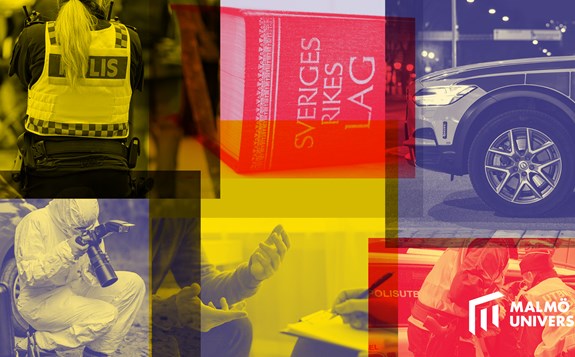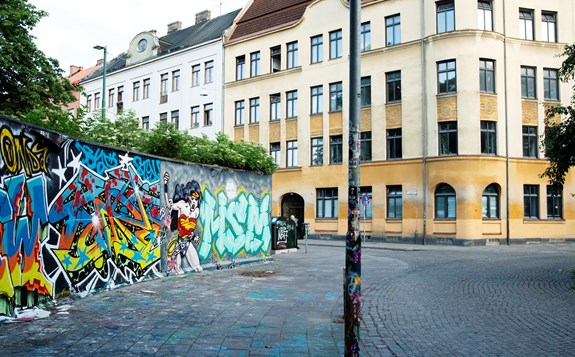We use cookies on this website. Cookies help us deliver the best experience on our website. Read about cookies.
-
- Education
- Education
- Programmes and courses
- Applications and admissions
- Tuition fees
- Scholarships
- Exchange studies at Malmö University
- Study Guidance
-
- After admission
- After admission
- Moving to Malmö
- Pre-orientation
- Arrival guide
-
- About studies at Malmö University
- About studies at Malmö University
- Why choose Malmö University
- Understanding university studies
- Connect with current students
On the page -
- Research
- Research
-
- Doctoral studies
- Doctoral studies
- Doctoral courses
-
- Doctoral schools
- Doctoral schools
- Education, Learning and Globalisation
- Doctoral school: Learning in Multicultural Societal Contexts
- ComBine
- Swedish National Graduate School in Science and Technology Education Research
- Doctoral school: Relevancing Mathematics and Science Education (RelMaS)
- Doctoral school: Sustainable Movement Education
- Finding ways in a time of great future challenges (FinnFram)
- Doctoral school: Pedagogy and Vocational Skills
- Doctoral school: Culturally Empowering Education through Language and Literature
- Research subjects
- Research centres
-
- Research publications
- Research publications
- Search publications
- Malmö University Press
- Research events
- Participate in a research study
- Coffee Break Quiz
On the page -
- Collaboration and Innovation
- Collaboration and Innovation
-
- Areas of collaboration
- Areas of collaboration
- Muvah
- Innovation
- Collaboration with students
-
- Collaborate with researchers
- Collaborate with researchers
- Labs and facilities
- Culture collaboration
- Support Malmö University
On the page -
- About us
- About us
-
- Faculties and departments
- Faculties and departments
-
- Faculty of Culture and Society
- Faculty of Culture and Society
- Department of Urban Studies
- Department of Global Political Studies
- School of Arts and Communication
-
- Faculty of Education and Society
- Faculty of Education and Society
- Department of Childhood, Education and Society
- Department of Sports Sciences
- Department of Natural Science, Mathematics and Society
- Department of School Development and Leadership
- Department of Culture, Languages and Media
- Department of Society, Culture and Identity
-
- Faculty of Technology and Society
- Faculty of Technology and Society
- Department of Computer Science and Media Technology
- Department of Materials Science and Applied Mathematics
- Faculty of Odontology
- University Dental Clinic
-
- Find and contact Malmö University
- Find and contact Malmö University
- Visit Malmö University
- News and press
- Map of the buildings (Google Maps)
- Merchandise
- Whistleblowing
- Management and decision-making paths
-
- Vision, objectives and strategy 2025
- Vision, objectives and strategy 2025
- Global engagement
- Sustainability
- Widened recruitment and participation
- Quality assurance work at the University
-
- Malmö Academic Choir and Orchestra
- Malmö Academic Choir and Orchestra
- Student work – video pieces
- Alumni & Friends
-
- Annual Academic Celebration
- Annual Academic Celebration
- Academic traditions
- Meet our new professors
- The University in a troubled world
On the page
Malmö Centre for Policing and Prevention
Policing and Prevention
Tackling the problem of crime in society requires knowledge and the dissemination of knowledge about what works.
Our research
The research centre focuses on strengthening three knowledge themes for more evidence-based crime prevention in the police.
- Strategies to prevent serious violence and the recruitment of young people to crime.
- Preventive work in local communities to reduce crime and increase safety.
- Effective and legally secure criminal investigation with new technology.
All in all, research within these themes provides the opportunity to create a more robust national knowledge base that in the long term can contribute to a safer society and to preventing children and young people from becoming involved in crime by making the police's crime-fighting work more effective, reducing crime and increasing safety in residential areas through collaboration, and making better use of technological developments to detect crime and make criminal investigations more effective.
Knowledge themes
Strategies to prevent serious violence and the recruitment of young people into crime
This theme studies various strategies to counteract serious violence and prevent young people from becoming involved in serious crime. There are currently several ongoing and planned projects linked to this theme and, within the framework of the research centre, these can be further strengthened and developed and contribute to a more robust national knowledge base.
Strategies that have been shown to work in an American context are those based on focused deterrence. Focused deterrence is a crime prevention strategy that targets individuals and groups who are particularly active in crime and combines targeted law enforcement measures with offers of help and support to leave crime. The strategy can also include preventing young people from becoming involved in serious crime by seeking out and offering support at an early stage. Examples of strategies based on focused deterrence to reduce gang violence are the one in Malmö known as Sluta Skjut (Stop Shooting) and nationally known as Group Violence Intervention (GVI) - a strategy to reduce serious violence in criminal environments. The Swedish Agency for Medical and Social Evaluation (SBU) has just released a report emphasising that this is one of the few evidence-based methods against gang violence.
Ivert & Mellgren have followed and researched the strategy in Malmö for several years, and now that it is spreading to a number of other municipalities, there is an increased need to follow this work and conduct new analyses for an expanded and more stable national knowledge base. An initiative against partner violence (Trygg relation - fri från våld), which is based on similar principles, has also recently been launched. There are good opportunities here to build new knowledge that can be disseminated within the police and other co-operation actors, and internationally.
There is also some international research indicating that police action against organised crime can reduce the use of violence in criminal networks. In Sweden, the police in Malmö and Gothenburg have cited their success against criminal networks as a reason for the reduced number of shootings, while the police in Stockholm have claimed that their success against organised crime has resulted in more shootings. Paradoxically, both may be right, and there are opportunities here to study the effects of police raids, for example on information from encrypted chats, on gang crime.
Prevention and legitimisation work in local communities to reduce crime and increase safety
This theme focuses on police work in the local community. It examines how the police work with partners to build a better local community by building trust and legitimacy. The focus for these efforts is on everyday crime and feelings of insecurity, but also on (gang) violence. Common interventions target home burglaries, vandalism or drug sales. This includes supporting initiatives such as neighbourhood watch or night walking, problem-oriented policing in collaboration with municipalities and property managers, and place-based policing to prevent crime. The Department of Criminology has followed and researched such initiatives for many years. For joint efforts to be feasible and successful, and for the police to have the best conditions to operate in crime-ridden and insecure areas, it is essential that there is trust in the police and that the police's work is perceived as legitimate. Citizens are then more inclined to assist the police with witness information, report crimes and engage in joint efforts with the police.
Neighbourhood Watch has a proven crime prevention effect. Still, it is only one of several examples of how organising residents can reduce crime by strengthening the collective efficacy to deal with problems in a neighbourhood. A neighbourhood with higher efficacy functions better and also tends to have lower levels of insecurity and disorder. Mellgren, Ivert and Gerell have all researched this type of relationship. The police often collaborate with municipalities and property managers to strengthen collective efficacy and reduce insecurity and crime, not least in vulnerable areas. This work is often based on problem-oriented policing, where a problem is identified, the causes are analysed, measures are implemented and finally the effects of the intervention is assessed. Meetings are regularly held to discuss and establish a common view of local crime problems as a point of departure for such work. Both Gerell and Ivert have been involved in this type of police cooperation, but there is potential to develop working methods further and develop clear knowledge about what type of interventions work best, and under what circumstances they do so.
Another type of measure often used to tackle volume crime is hot spot policing, usually by deploying foot patrol officers to high-crime locations. This is a well-established method for reducing crime in international research, but in Sweden, there is not much research on the subject.
Police work in and outside so-called safety zones and other crime-ridden areas is also studied within this theme. Here, the focus is on both treatment and the meeting between the police and the public, and on the effects of personal checks on crime, security and the legitimacy of the police.
Effective and fair criminal investigation with new technologies
This theme studies how police investigations can become more efficient and legally secure and how new technologies can contribute to this. Previous projects have dealt with how camera surveillance can play a role in criminal investigations, but knowledge is needed in several other areas.
Society has a far-reaching responsibility to prevent and investigate crime. Failure to do so has significant consequences for family members, but also for the security of society and thus the health and well-being of the population. In addition, detecting and preventing new crime, especially among young people, is made more difficult when a perpetrator cannot be linked to an offence.
A research project on police investigations of serious violent offences is underway at the unit for police work, focusing on what in an investigation causes a case to remain unsolved. Although this is an important area, there is a large lack of research to improve the police's investigative work and research needs to be developed.
Gerell teaches a course for new homicide investigators, where the importance of technical evidence is emphasised. The government has also announced that major investments will be made in new technology, such as automatic number plate recognition (ANPR), increased facial recognition in criminal investigations and a major expansion of camera surveillance. New technology has the potential to greatly change and streamline criminal investigation work. Here, research can play a major role in developing knowledge that ensures that the technology is used in a good way. In addition, there is also an increased use of sound sensors to identify offences. In addition to extensive research on camera surveillance, Gerell has also researched sound sensors to identify shootings in Wilmington, USA, but when this technology is on its way to Sweden, new knowledge will be needed.
Research projects
-
 Research project
Research projectDriving simulators for an efficient and safe traffic work environment for police officers
caroline.mellgren@mau.se -
 Research project
Research projectHate crime in the justice system: A study to improve the Swedish Police Authority’s capacity to identify and investigate hate crime
mika.hagerlid@mau.se -
 Research project
Research projectData-driven interdisciplinary methods to combat crime and fear using police CCTV
manne.gerell@mau.se -
 Research project
Research projectEvaluation of the implementation of Intimate Partner Violence Intervention (IPVI) in Malmö
caroline.mellgren@mau.se -
 Research project
Research projectSimulator based training for emergency personell - Knowledge transfer in relation to risk and sustainability
joakim.ingrell@mau.se -
 Research project
Research projectApplied research to prevent crime and reduce fear in Skåne, Sweden
manne.gerell@mau.se -
 Research project
Research projectEvaluation of Sluta Skjut
anna-karin.ivert@mau.se
Funding for the Centre
The centre is funded by a donation from Länsförsäkringar Skåne.
Steering group
-

Manne Gerell - Associate Professor/Senior lecturer
manne.gerell@mau.se
+46 72 243 04 33Department of Criminology
-

Anna-Karin Ivert - Head of department/Associate Professor
anna-karin.ivert@mau.se
+46 40 665 76 47Department of Criminology
-

Caroline Mellgren - Associate Professor
caroline.mellgren@mau.se
+46 72 239 43 65Department of Criminology




